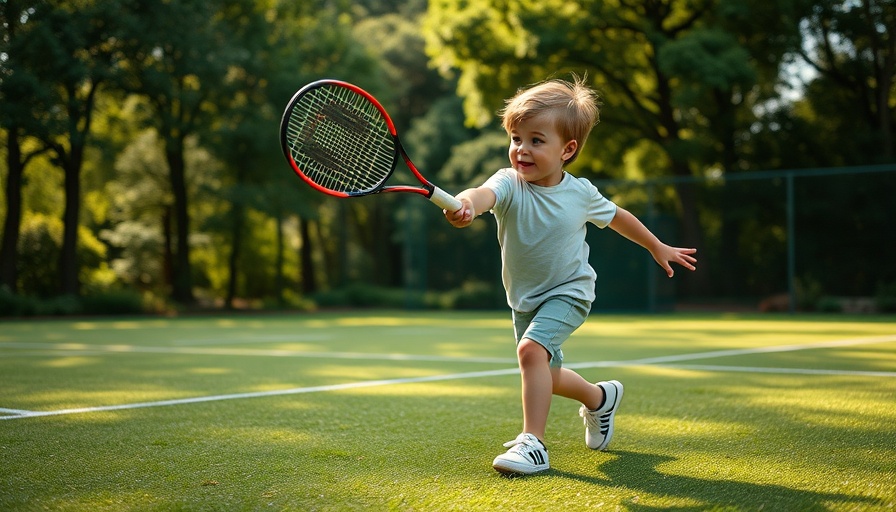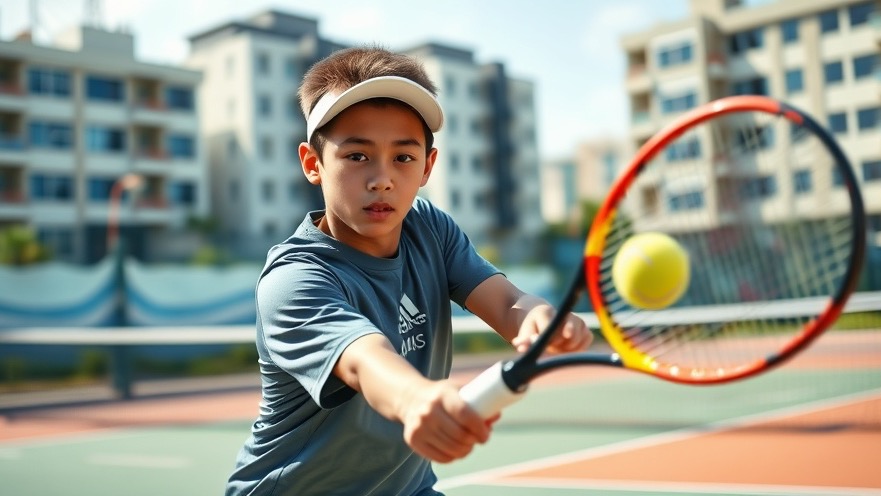
What Makes Young Athletes Shine?
In today’s sports landscape, spotting talent early seems to be the golden ticket to success. The talk around rising stars like 'Baby Federer' captures the excitement of youth in sports, igniting discussions about the importance of foundational training and early exposure to competition.
In 'Baby Federer in the making', the discussion dives into the world of emerging young talent in sports, exploring key insights that sparked deeper analysis on our end.
The Cultural Context of Young Athletes
Identifying exceptional athletes at a young age is not merely about athletic prowess; it's interwoven with cultural perceptions. For instance, tennis has always celebrated prodigies and their exceptional skills, reminiscent of legends like Roger Federer. Baby Federer represents not just talent, but also an embodiment of societal aspirations toward sports excellence. The idea of nurturing young sports talent aligns with cultural values surrounding discipline, effort, and the dreams that parents have for their children.
What We Can Learn from Early Stars
Watching a young athlete like Baby Federer inspires more than just admiration; it sparks a reflection on our investment in youth sports. How many more star athletes might emerge if we foster environments that support their growth? The best practices from other sports can provide insights into creating structured pathways for these budding talents while balancing the pressures they face.
Connecting the Dots: Young Athletes and Future Trends
The rise of youngsters in sports like tennis and pickleball suggests a trend towards earlier specialization. Parents and coaches should consider the potential psychological impacts on these children, examining how the pressure to excel at a young age can affect their enjoyment of the game. Further, many believe that leveraging today's digital platforms can enhance training methodologies for young athletes, opening opportunities for diverse learning experiences.
Encouraging Healthy Competition and Teamwork
While individual greatness like that of Baby Federer grabs headlines, fostering a sense of teamwork and camaraderie among young players holds equal significance. Programs that emphasize collaboration can lead to well-rounded athletes who excel not just individually, but also contribute to their communities. Prioritizing cooperation can give young athletes the emotional takeaways that prepare them for lifelong sports involvement.
Conclusion: Embracing the Future of Sports
The narrative of young athletes, particularly those echoing legends like Federer, serves as a microcosm of sports culture today. As society becomes more engaged with youth sports, it's essential to focus on holistic development that fosters joy, resilience, and passion for the game. Encouraging parents and communities to support young talents beyond just achieving accolades might create a future filled with not just champions but well-rounded individuals.
 Add Row
Add Row  Add
Add 




 Add Row
Add Row  Add
Add 

Write A Comment